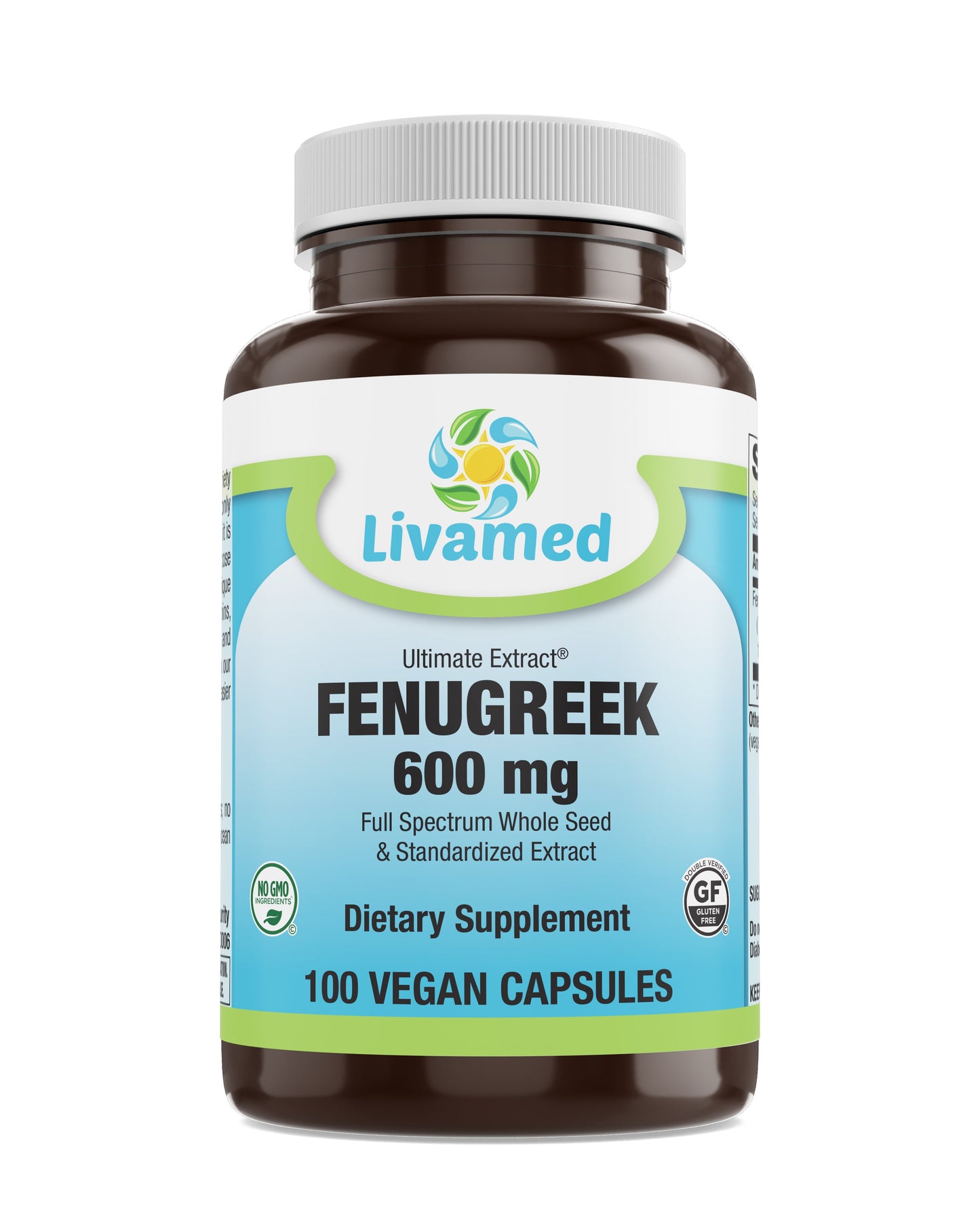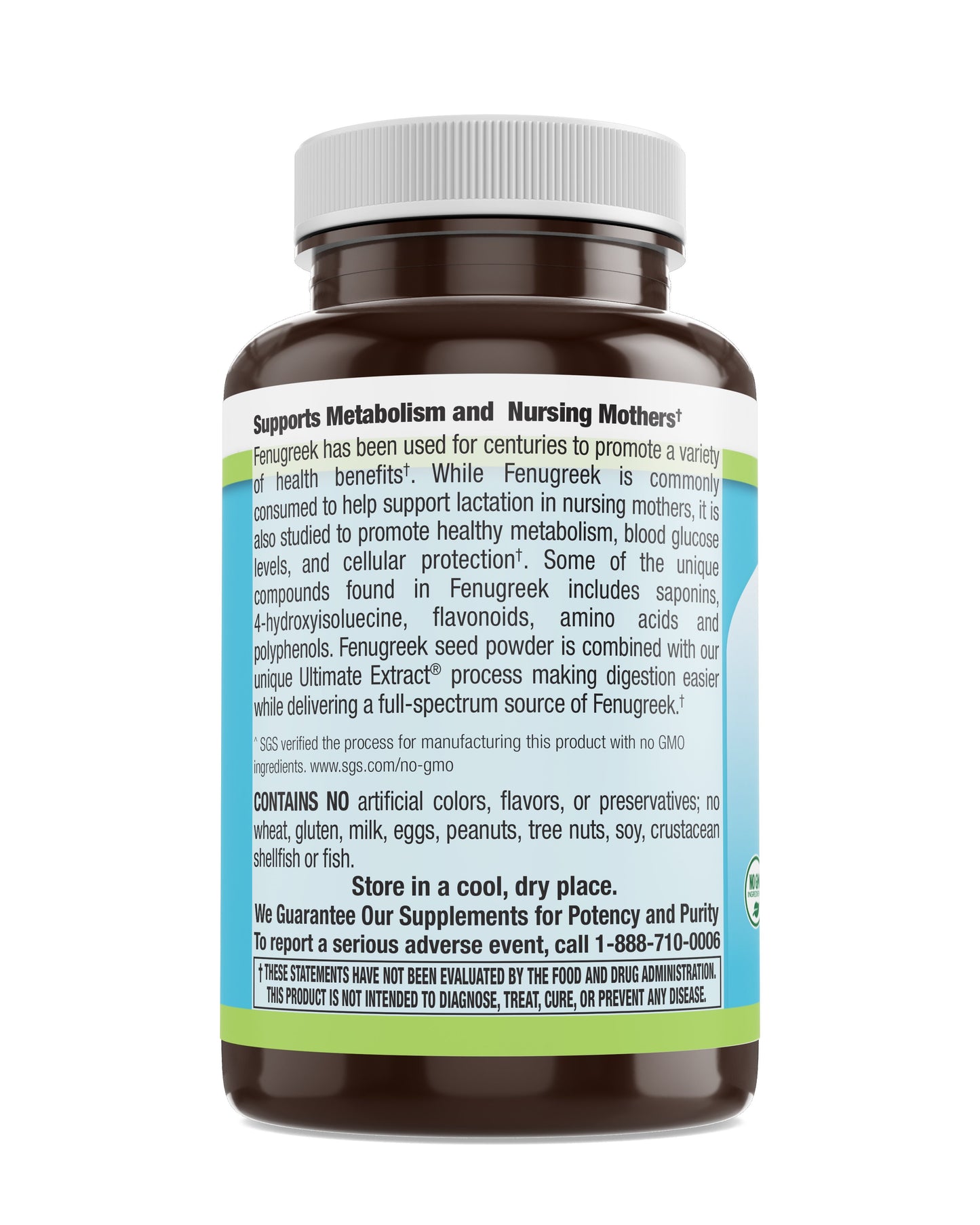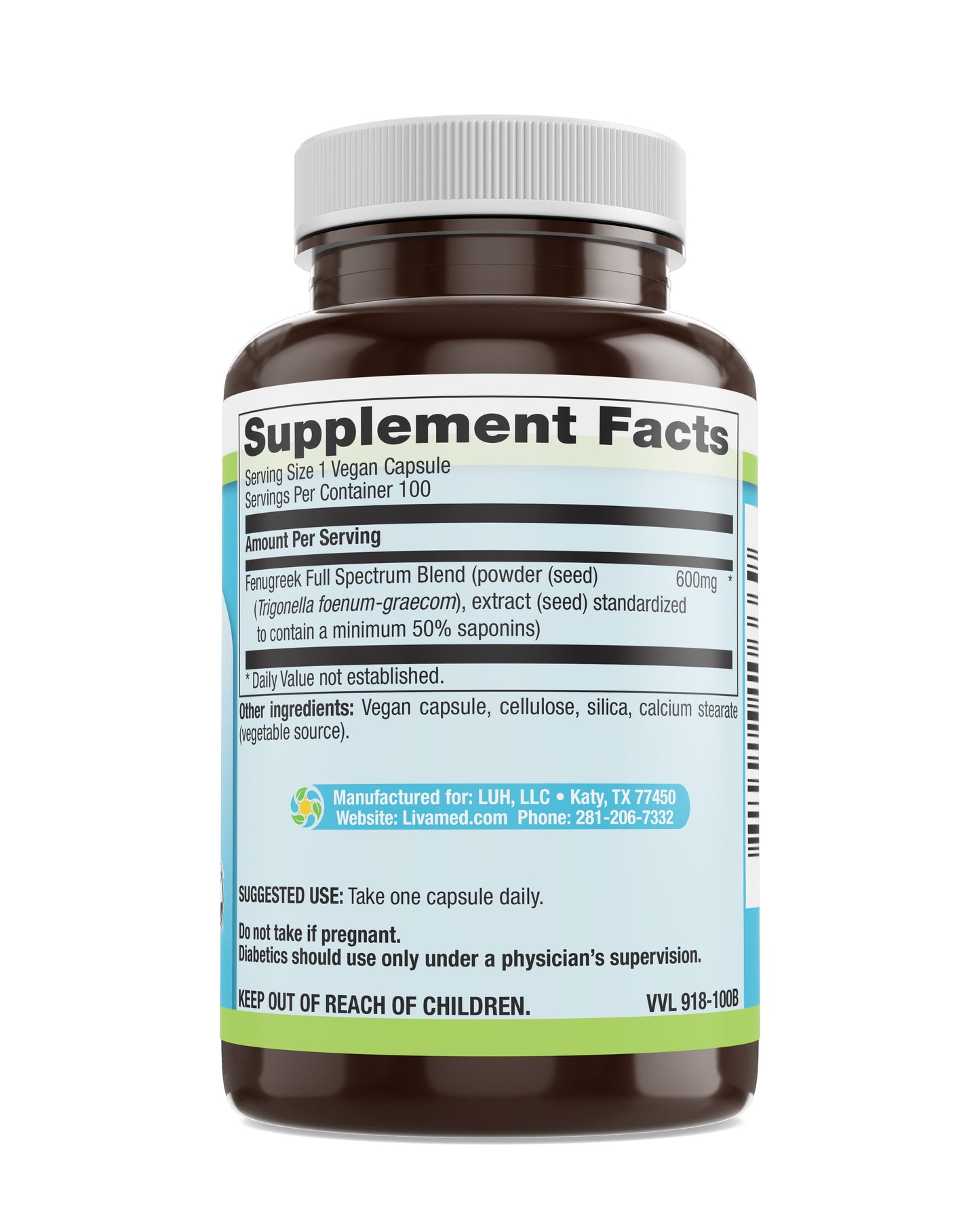Ultimate Extract Fenugreek 600mg Veg Caps 100 Count
Ultimate Extract Fenugreek 600mg Veg Caps 100 Count
Couldn't load pickup availability
Ultimate Extract Fenugreek 600mg Veg Caps 100 Count
Fenugreek seed has been used in herbalism and for culinary purposes for millennia. It is most often utilized in Indian, Egyptian, and Middle Eastern cuisine, but is used commercially as a flavoring agent in much of the world. Its delicate maple-like flavor makes it perfect for baked goods and confectioneries and also for creating imitation maple syrups. It has been utilized in traditional herbalism to support digestion, support lactation in nursing mothers, and as a topical application.
- FENUGREEK: Using the herb Fenugreek can cause various health benefits. Some benefits can include relief from fevers, stomach problems, throat soreness, inflammation, respiratory disorders, mild insomnia, sores or ulcers in the mouth as well as other health related problems.
- Promotes Lactation
- Supports Men's Sexual Health
- Promotes Healthy Circulation
- 600 mg Fenugreek (Trigonella foenum-graecum) Root per serving
Fenugreek has traditionally been used as a cooking spice and folk medicine for such ailments as diabetes, boils, cellulitis, and tuberculosis. Its use dates back centuries. Fenugreek seed extract is used for imitation maple flavoring. Agriculturally, it is grown as animal fodder and for the commercial production of steroids. The nitrogen and protein-rich waste from the pharmaceutical industry is used for agricultural fertilizer.
Fenugreek leaves contain saponins which are glycosides of diosgenin. The seeds contain 0.1 percent to 0.9 percent diosgenin, which is used in the production of steroids. The seeds also yield several coumarin compounds, alkaloids, and several C-glycoside flavones. A mucilaginous fiber, comprising 50 percent of the seed, is used internally to treat constipation and diarrhea, and externally in poultices and emollients.
Studies have demonstrated the ability of fenugreek to significantly reduce serum cholesterol in laboratory studies. A hypoglycemic effect has been shown in those studies. Fenugreek seeds reduced blood glucose, plasma glucagon, and somatostatin levels as well as carbohydrate-induced hyperglycemia, resulting in decreased insulin dosages. In both cholesterol and blood sugar testing, the defatted portion of the seed demonstrated the pharmacologic activity. Other studies have demonstrated anti-inflammatory and diuretic activity, and an extract of the leaf repels some insects. An apparent ability of fenugreek to reduce the amount of calcium oxalate deposited in the kidneys is under study. No adverse reactions to fenugreek have been found when taken in culinary quantities.
Share







